| 11 Sep 2025 | Effects of subrosion on a potential repository in salt rock Subrosion, i.e. the leaching of easily soluble rocks in the subsoil, can impair the barriers of a repository for high-level radioactive waste. In a recently completed research project, scientists at GRS investigated these processes and compiled affected areas and boundary conditions in a web application. Model calculations of groundwater flow help to better assess the long-term effects of subrosion on the containment of radionuclides in a repository system. |
11 Sep 2025 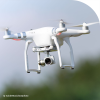
|
The role of drones in nuclear safety and security - an overview of the benefits and risks of using this technology In recent years, drones - also known as unmanned aerial vehicles, systems or devices (UAV, UAS or UAD for short) - have become increasingly important. |
11 Sep 2025 
|
Hidden risks: Computer security also encompasses the supply chain Be it software updates, cloud services or external analysis platforms - modern IT systems rely on a large number of digital service providers. What brings efficiency also harbours new risks: This is because attackers can penetrate deep into well-protected systems unnoticed via an inadequately protected supply chain - even in safety-critical areas such as nuclear engineering. A new GRS research project looks at how such attacks unfold, which systems are particularly at risk, and how operators can protect themselves better. |
27 Nov 2024 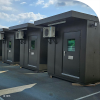
|
Physical protection of nuclear facilities in Ukraine - insights into the work of German-Ukrainian cooperation The Russian invasion is affecting the lives and safety of people in Ukraine on many levels. With the capture of the nuclear power plant sites at Chernobyl - which is now back under Ukrainian control - and Zaporizhia, nuclear facilities have also been included in the hostilities and have therefore increasingly become the focus of public attention. GRS has been in close professional contact with Ukrainian partner organisations for decades, whereby the security of the facilties, i.e. their physical protection, also plays a role. On behalf of the Federal Foreign Office, GRS is working with Ukrainian and national partners to implement specific measures that contribute to improving the security of the facilities there. |
27 Nov 2024 
|
AI technologies for more efficient dismantling of nuclear power plants With the shutdown of the last German nuclear power plants, the decommissioning of these installations is now at the centre of attention. However, the impending shortage of skilled labour poses major challenges for the industry. Experts from GRS are therefore working with their partners in a research project that has just been launched to train specialists more efficiently in the future and to promote young talent in a more targeted manner: A hybrid learning platform with VR and AR elements and an innovative AI application are intended to optimise dismantling processes and prepare the industry for the future. In addition, a digital platform is being developed to make licensing processes more transparent and efficient. |
27 Nov 2024 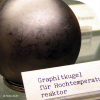
|
The pebble bed reactor at the Shidaowan nuclear power plant - an inherently safe reactor? The Chinese Shidaowan nuclear power plant recently made the headlines in Germany: According to a paper published in the scientific journal Joule, tests are said to have proven that a core meltdown accident in the world's first commercially operated pebble bed reactor has been ruled out and that it is therefore ‘inherently safe’. This article describes how this type of reactor works, what follows from the experiment, and what safety challenges may nevertheless arise. |
22 Dec 2023 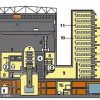
|
GRS research projects on nuclear safety in Ukraine: Simulations and scenarios of severe VVER reactor accidents More than 30 pressurised water reactors of the Russian or Soviet VVER (water-water-energy reactor) type are currently in operation in Eastern and Central Europe, and several new plants are under construction. Mochovce-3, for example, started commercial operation in Slovakia in October 2023. Not least the war in Ukraine and the fact that the Zaporizhzhya nuclear power plant (NPP) became the theatre of war have shown that technical knowledge about this type of plant is still needed in Germany too, e.g. to be able to assess any risks. Experts at GRS are therefore involved in numerous research projects on VVER reactors, including international ones. |
15 May 2023 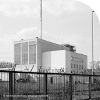
|
The shutdown of the last NPPs in Germany: a brief review from a (safety) technical perspective On 15 April 2023, the last nuclear power plants in Germany will be shut down. This will mark the end of the history of electricity production from nuclear power after more than 60 years: in June 1961, the Kahl experimental nuclear power plant fed electricity generated by nuclear energy into the West German grid for the first time; five years later, the Rheinsberg nuclear power plant was the first commercially used nuclear power plant in the GDR. The six decades of nuclear power use were initially marked by euphoria, then increasingly by scepticism and rejection. This article, however, focuses less on social or political aspects than on (safety) technical aspects. |
30 Apr 2022 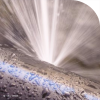
|
New flow model for steam generator tube leakages developed Steam generator tubes in pressurised water reactors are exposed to high stresses such as high temperatures or large pressure differences. In combination with possible corrosive effects due to deposits in the outer area of the tubes, these stresses can at worst lead to leakages, which in turn could have an influence on operational safety. A team of researchers from GRS and the Materials Testing Institute of the University of Stuttgart has therefore conducted in-depth investigations into such leakages with the support of the Federal Ministry for the Environment and the Federal Ministry of Economic Affairs. The scientists have now developed a flow model with which the leakage rate of the escaping medium can be determined even more precisely than previously possible. |
30 Apr 2022 
|
On the track of safety: simulating events and accidents in nuclear power plants GRS now offers an extended and revised version of its AC² code package which is used worldwide by supervisory authorities, expert organisations and universities as well as research centres to review the safety of nuclear power plants and other nuclear facilities. The updated version allows i. a. the better simulation of technical features of so-called SMRs (Small Modular Reactors). |
Pagination
- Page 1
- Next page
Copyright · All rights reserved